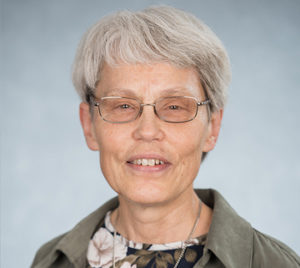
Readings:
First Reading: 2 Kings 4: 8-11, 14-16a
Responsorial Psalm: Psalms 89: 2-3, 16-17, 18-19
Second Reading: Romans 6: 3-4, 8-11
Gospel: Matthew 10: 37-42
These days it seems as if the world is functioning in overdrive, as every trend manifests with startling intensity. Many of these trends involve heartrending death and destruction. Catastrophic wildfires and cascading species extinctions; the Covid-19 pandemic and its devastation of innumerable livelihoods; racist murders and the righteous rage they have invoked; these name only the most prominent among the tragedies that keep piling up one upon another. And yet, inextricably wound up with these same tragedies, we see the birth of new movements and new practices that lift our hearts with hope. There is anguish as we watch the world as we have known it buckle and collapse, causing immense suffering as it does so. Yet even before the dust settles, we perceive that something new is possible. The anguish is far from over, but we have hope.
In the gospel for today, Jesus says, “Whoever does not take up their cross and follow after me is not worthy of me. Whoever finds their life will lose it, and whoever loses their life for my sake will find it.” These are difficult sayings because, in the abstract, we all recoil from ideas like picking up crosses and losing our life. Perhaps instead of meditating on these as abstract and harsh admonitions – as if Jesus would delight in increasing our suffering – it would be better to reflect on these sayings as encouraging interpretations of the life we are already immersed in.
We have suffered, and we will suffer – this is true of every one of us. In suffering, we lose much, and there is no masking the grief and, often, the sense of injustice that ravage us in those moments. Yet when we examine our experiences of suffering, we find that when we find the inner resources to face them with courage, compassion, and comradeship, they can deepen our humanity and strengthen our capacity to love. Even the most devastating traumas have been known, in some cases, to awaken the depths of the self-giving human spirit and bear remarkable fruit for good. To discover this in one’s own or another person’s actual life story is not the same as saying abstractly, “Trauma is good for you.” Trauma and suffering are not good; they are not to be desired, demanded, or complacently condoned for oneself or for others. Yet some degree of suffering is, in fact, a part of real life, avoided (as far as I know) by no one. Jesus’s sayings interpret for us the real potential for hope that resides even in the darkest hour of our human experience.
It is noteworthy that Jesus’s follow-up to these extremely challenging sayings is a reflection on being hospitable to prophets, holy people, and “little ones.” Such hospitality seems simple enough – until the day when the person you are receiving calls upon you to rearrange the furniture of your heart and to welcome their differentness in ways you find distressingly uncomfortable. Years ago I had a priest friend who was extremely radical in his embrace of simple living and solidarity with the poor. His religious community was so uncomfortable with this that they regularly mocked and marginalized him. Not surprisingly, he eventually left the congregation. Welcoming the prophet in their midst had been too much for them.
Sadly, this may be true of all of us more often than we realize. Even though we may claim to admire our contemporary “prophets,” those who are too challenging to our settled ways of living and thinking are kept at a safe distance. Hospitality is, in fact, one of the most arduous spiritual practices. The Protestant theologian Miroslav Volf has written: “The distance from my own culture that results from being born by the Spirit creates a fissure in me through which others can come in.” His insight seems especially apropos in these days when the veil is being torn off of previously unacknowledged systems and practices of racism that may have actually been quite comfortable for many of us. Are we really ready to be “fissured” by the Spirit so those different from ourselves can come in as fully equal sisters and brothers? Only when we are ready to “lose our lives” in this way will we be ready to embrace the new world that God hopes to create amidst the ashes of this world that is collapsing around us.
Sr. Mary Frohlich, RSCJ
Professor Emerita of Spirituality